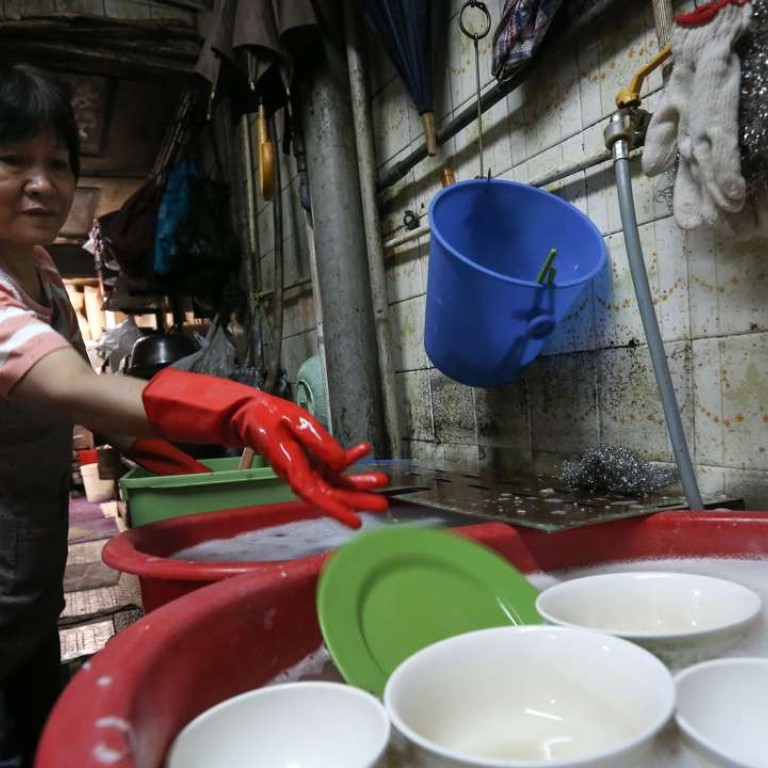
Hong Kong unions slam proposal to raise minimum wage by just HK$2 to HK$34.50 per hour
The proposed increase of 6.15 per cent is the lowest since minimum wage mechanism came into effect; employers wanted the rate to be frozen
Labour unions were up in arms after it emerged on Friday that Hong Kong’s minimum wage could be raised by HK$2, or 6.15 per cent, to HK$34.50 per hour next year, the smallest percentage increase since the baseline was introduced five years ago.
A source revealed that members of the Minimum Wage Commission had reached a consensus on the increase – far below the HK$41 that union representatives on the panel had fought for – which now requires final approval by the Executive Council.
The source said the unions first stuck to their guns, as did employer representatives counter-demanding the minimum wage be frozen at its current level of HK$32.50 at the beginning of last week’s meetings.
“By the end of the meetings the members agreed to raise the level to HK$34 - HK$35,” but there was no consensus on the exact rate.
The commission did not meet after that, but following some government lobbying, members informed the commission secretariat that they had agreed on the final amount.
“All commission members have finally indicated their consent on the new minimum wage level,” another source told the Post.
If the chief executive and his cabinet approve it, the new minimum wage will come into effect from May next year for some 154,500 employees across the city.
In contrast, the amount was raised by 8.3 per cent last year and 7.14 per cent in 2013.
“We are all disappointed with the increase, it is not ideal for employees at all,” Leung Chau-ting, a member of the Labour Advisory Board, said.

Leung said employee representatives in the commission had “tried very hard” to negotiate a higher hourly rate, but eventually had to give in to employer representatives’ resistance.
“When we agreed to the minimum wage when it was first enacted, we were willing to give in to a low rate because we understood employers needed time to accept it. But after five years, we, as labour representatives, still always seem to be in a weaker position in all the bargaining,” Leung said.
We, as labour representatives, still always seem to be in a weaker position in all the bargaining
The Labour Party and Confederation of Trade Unions (CTU) urged Exco not to endorse it, while the Federation of Trade Unions was “extremely dissatisfied”.
Former Labour Party lawmaker Cyd Ho Sau-lan said rallies would be organised to pressure Chief Executive Leung Chun-ying to allow another review.
CTU leader Mung Siu-tat said the union would press the government to revamp the commission, complaining that employees were under-represented.
Mung said the commission, comprising a chairman and not more than 12 members from the labour sector, business,academia and the government, was biased towards employers.
“The government representatives should have an observer role rather than having too much say as they do now because they tend to protect business interests,’’ he said. “ This does not give employees a fair say.”
On the employers’ side, Danny Lau Tat-pong of the Small and Medium Enterprises Association said the new rate was “very reasonable”, while the pro-business Liberal Party’s Tommy Cheung Yu-yan, the catering sector lawmaker, said the minimum wage should have remained frozen, as the burden on businesses would be passed on to customers.
“Raising the minimum wage affects the catering sector the most, and the increase in cost will be passed on to customers,” Cheung said.


